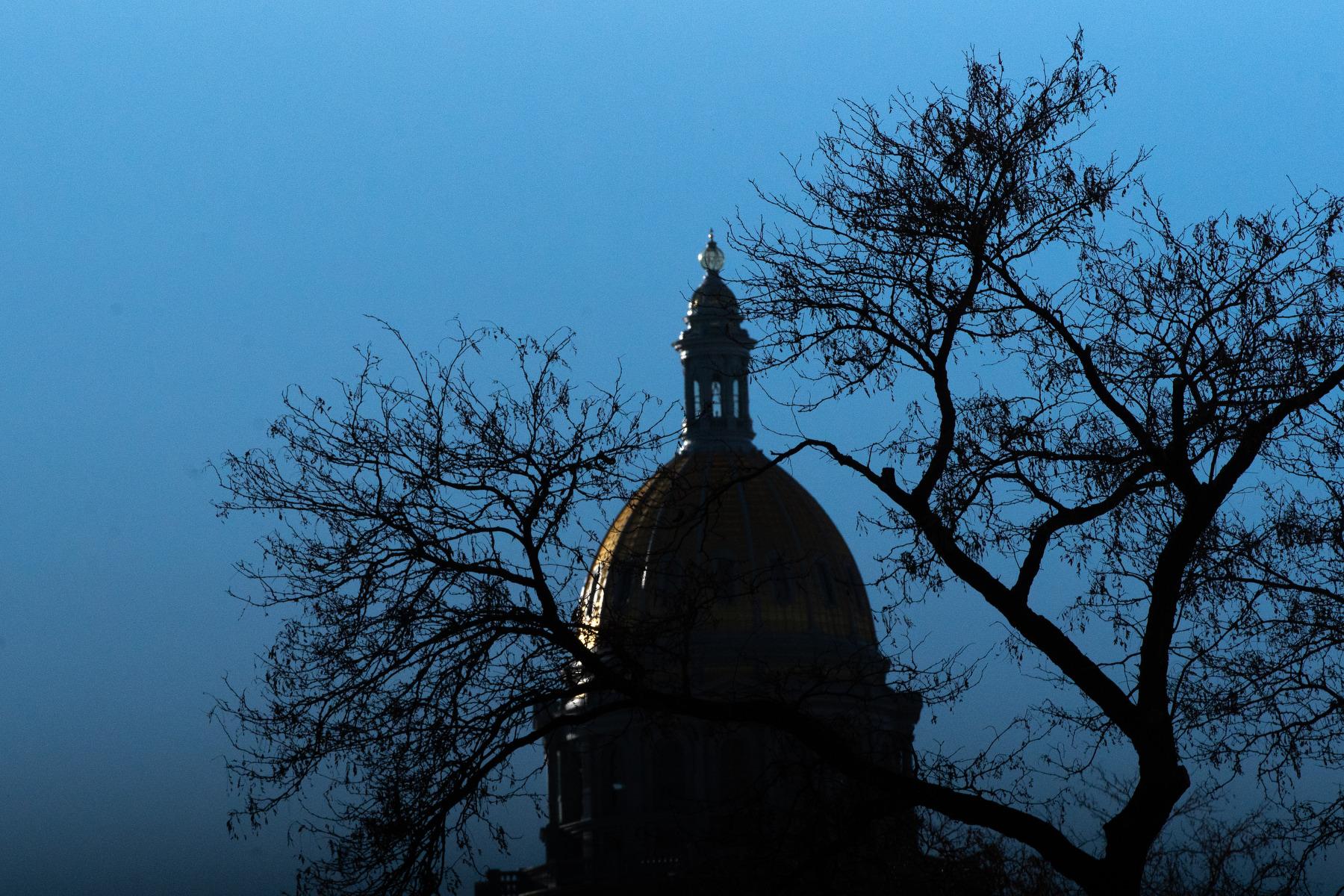
For the next four months, Colorado’s 100 lawmakers will gather under the gold dome at the state capitol to debate and pass laws that touch all aspects of life in this state, from schools and healthcare to roads and prisons.
Coming out of the November election, a third of the House will be new faces, with freshmen making up 22 of the 65 representatives. In the Senate, all but one of its nine new members served in the House before this election. Three post-election resignations will change its makeup further though.
Democrats will hold a slightly smaller, 43-22, majority in the House after Republicans managed to flip three seats. The Senate remains split between 23 Democrats to 12 Republicans, although two seats changed hands. Those margins leave Democrats just shy of a legislative supermajority in both chambers.
Despite their party’s disappointing national showing in November, Democratic lawmakers say they believe voters support how they’ve led the state.
“We've got polling and data that talks about how Colorado is moving in the right direction,” said incoming Senate President James Coleman of Denver. He believes Colorado can share its best practices as a beacon for the rest of the country.
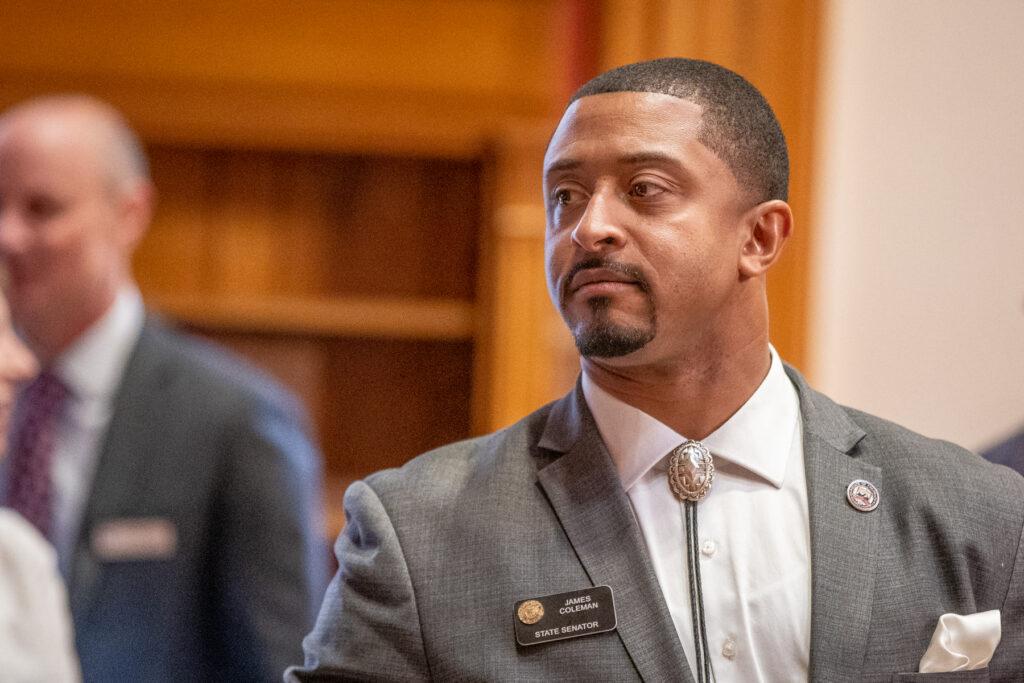
Democrats point to laws they’ve passed in recent sessions to tighten up the rules for gun ownership, give renters more rights, and increase affordable housing and transit options. And despite losing a few seats, they note voters still returned the Democratic Party to run state government.
“It's because we protect our vulnerable folks and we respect women,” said Democratic Rep. Meg Froelich of Englewood.
Republicans, however, say they were able to make inroads at the statehouse for the first time in several election cycles in part because voters are fed up with Colorado’s high cost of living, which has only gotten worse in the years Democrats have been in control.
“It's the nickel-and-diming of Coloradans, and they're tired of it,” said House Minority Leader Rose Pugliese of Colorado Springs. She said there’s an opportunity this session to pass policies that could make real impacts on people’s pocketbooks.
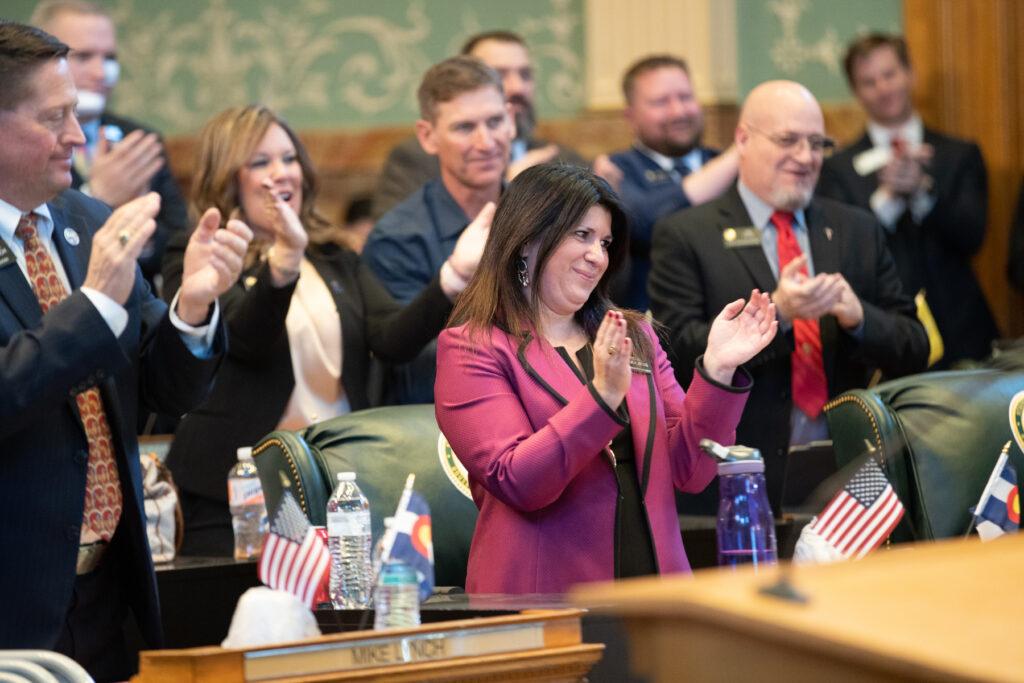
As the legislature’s Republicans and Democrats debate what Coloradans really want from their leadership, they’ll be meeting under a changed national political landscape, as President-elect Donald Trump begins his second term in office.
“What does it mean to be this blue island in a sea of red and what can we anticipate from a Trump administration?” wondered Democratic House Assistant Majority Leader Jennifer Bacon of Denver.
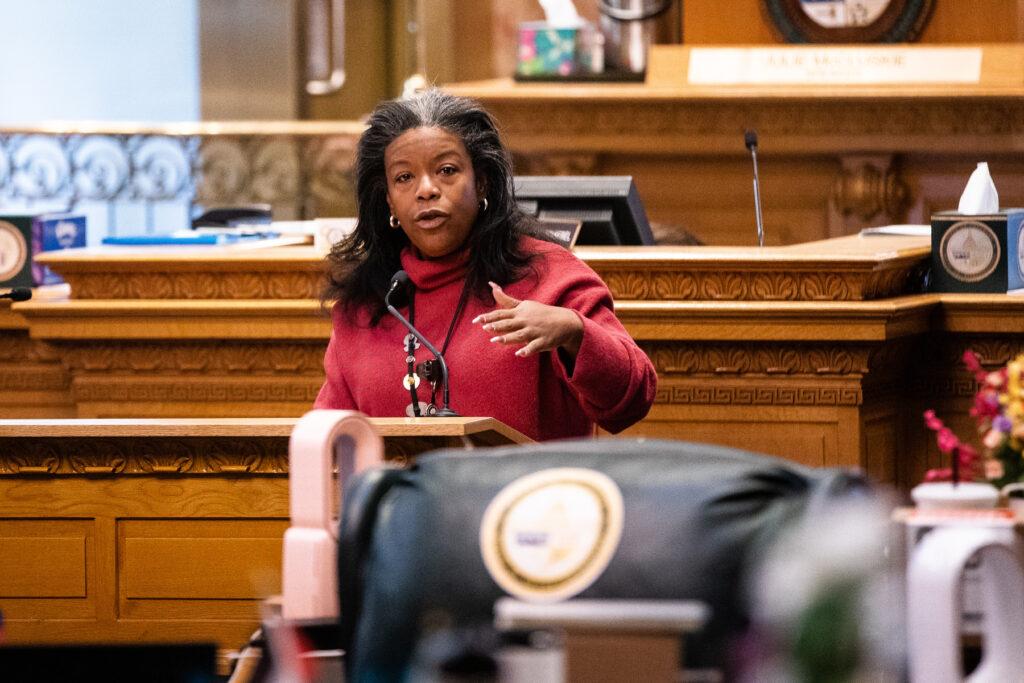
Bacon said she hopes a Trump presidency can unify Democrats around shared priorities.
“We may find some real focus this session,” she said. “In addition to working on things that I typically work on, I am part of the crew that's just kind of like, ‘okay, if the EPA ceases to exist, what are we going to do?’”
Others caution against predicting what a second Trump term may mean for Colorado in the coming months.
“I think there are a lot of individuals who are telling themselves stories of what may happen, and they're responding to something that may happen. I think, let's actually see what happens first, and respond appropriately," said GOP Senate Minority Leader Paul Lundeen.
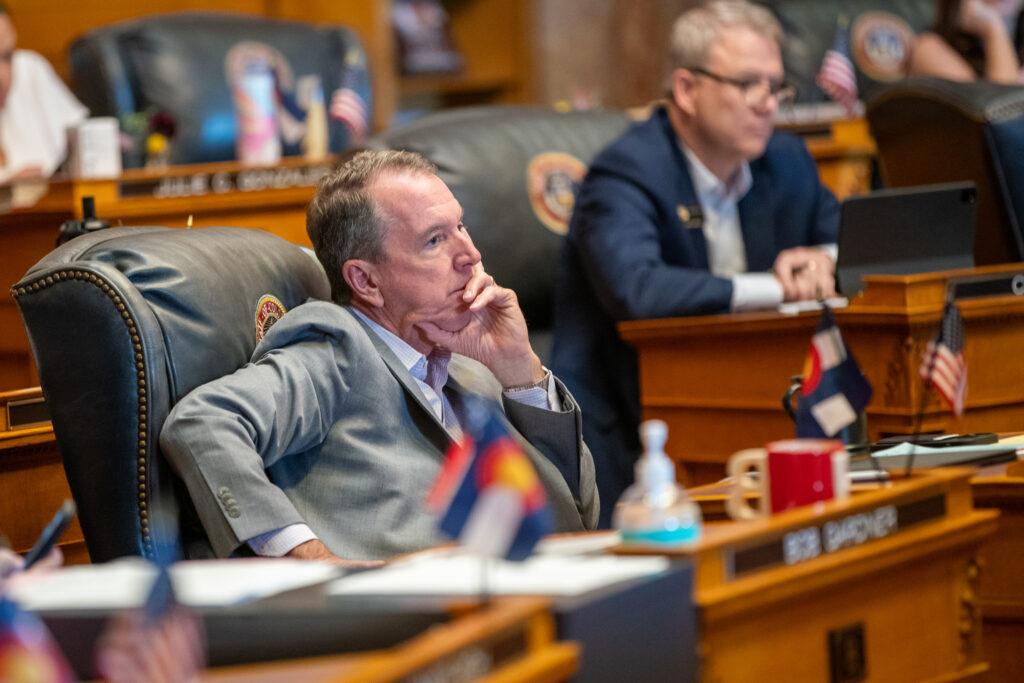
Financial concerns will shape the session
National political concerns may well have to take a backseat to local ones for this session though. Lawmakers arrive in Denver with one big, unpleasant item at the top of their to-do list: cut the state budget.
According to the latest revenue forecast, Colorado is looking at a shortfall of nearly $700 million for the next fiscal year.
“The budget has significant challenges, and we can't do everything that everyone wants or that we as a collective promised,” Mark Ferrandino, Gov. Jared Polis’ budget director, warned members of the Joint Budget Committee in December.
Polis’ own proposal for how to balance the budget was met with a cool reception from the JBC, which ultimately crafts the state’s spending plan. Lawmakers in both parties say they want to preserve funding for vulnerable populations and education.
According to the state’s fiscal analysts, some of the big drivers of the budget gap are higher-than-expected Medicaid costs and the end of federal COVID relief money.
For Republicans, it’s a bit of an “I told you so moment.”
“We just flat-out over-extended,” said GOP budget committee member Sen. Barbara Kirkmeyer. “We knew this was coming.”
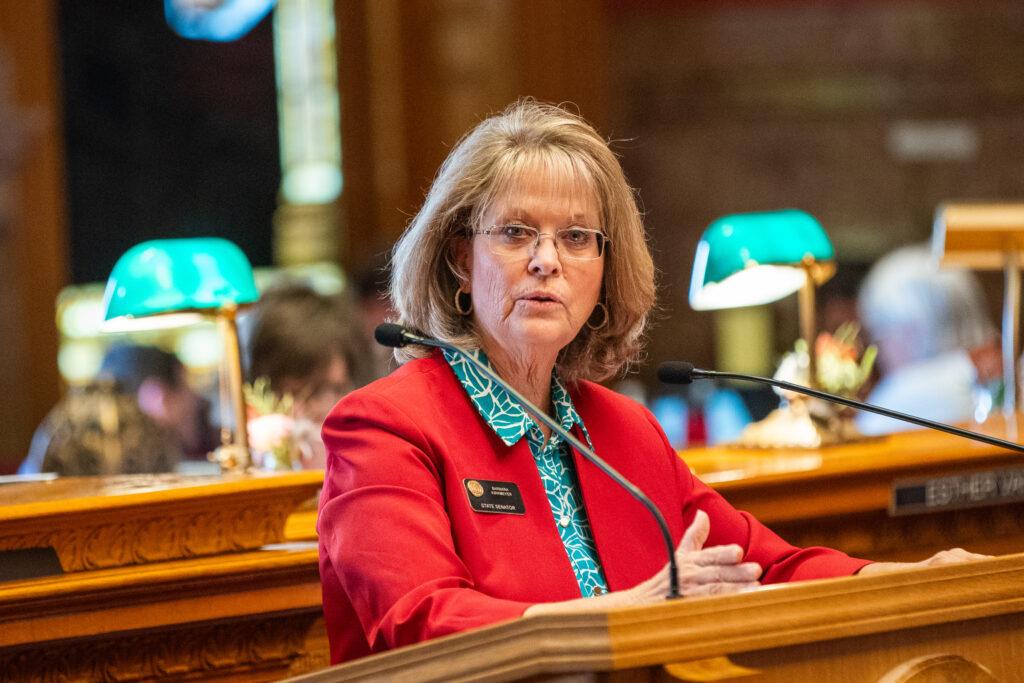
Republicans blame Democrats for spending too much of the one-time federal money in ways that created ongoing obligations.
“So now we have a structural deficit, and everybody's looking at each other saying, ‘Oh my gosh. How did this happen?’” said Sen. Lundeen.
As lawmakers gear up for tough budget debates, some fiscal hawks see the situation as an opportunity to rein in what they consider superfluous spending and pare back overextended government resources.
“It's going to be a really fascinating conversation,” said Rep. Pugliese. “How much money we actually have without this influx of federal money, and what are the priorities for the state? I think there's a lot of opportunity.”
Passing a balanced budget is the only thing lawmakers are constitutionally required to do during their four-month-long session. Getting there this time will require trade-offs between different priorities, and will shape everything lawmakers want to pass, especially any new proposals that come with a price tag.
“It'll be unprecedented. It's going to be extremely challenging,” said Democratic Sen. Jessie Danielson.
Workplace policies will again be a big focus for some Democrats
Aside from the budget, one of the session’s biggest fights could actually be between Democrats, as progressive lawmakers square off against Gov. Polis over labor policy.
A group of House members have already unveiled legislation that would make it easier for Colorado workers to form unions, by repealing the Labor Peace Act. The 80-year-old state law requires an additional election, with at least 75 percent of workers voting, before a workplace can become a ‘closed shop’ where all employees are required to join the union.
Colorado is the only state in the country with such a law, which many view as a modified ‘right to work’ policy. The bill’s sponsors say repealing it would remove a barrier to unionization.
“We've got a duty to the workers who make this economy run and make our state as amazing as it is to give them more freedoms and more rights, especially when it comes to having a seat at the table and say in what happens in their workplaces,” said Sen. Danielson, who will be one of the bill’s main sponsors.
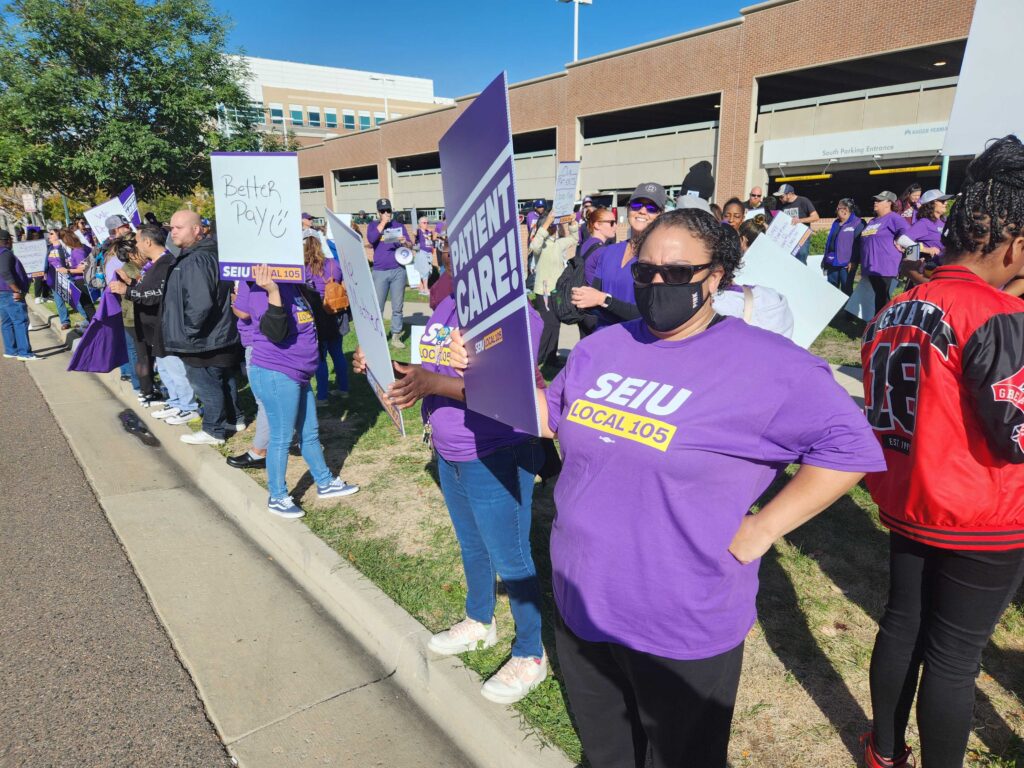
But the bill was met with immediate pushback by Gov. Polis, who already vetoed two worker’s rights bills from the 2024 session: one to crack down on wage theft in the construction industry and another to give employees more power to ignore their bosses on the topics of religion and politics.
In a statement to the Colorado Sun after the new proposal’s unveiling, spokesperson Shelby Wyman described Polis as ‘leery’ of the policy.
“Any changes to the Labor Peace Act would need to find common ground with employers and businesses and labor, and the governor is deeply skeptical of this bill without a heavily negotiated, thoughtful and comprehensive process,” she said.
A session for reflection, possibly more than ambition
So far, it’s sounding like some of the marquee issues that have dominated lawmakers’ attention in recent sessions won’t be taking center stage this time around.
Housing and transit have been the top priorities for Polis in his second term, as he took on local governments in an effort to reshape how the state grows into the future. His first big attempt at rewriting the state’s land use policies failed in a big way in 2023, but he saw more success last year, with a bill that could lead to denser housing around transit hubs.
While there are likely to be some new housing policies floated this session, policymakers don’t expect anywhere near the battles of the past few years.
It’s also unlikely that there will be any major new oil and gas legislation this year, after lawmakers, the governor, environmental groups and fossil fuel industry leaders struck a deal last spring.
Under the terms of their grand bargain, industry-accepted a new drilling fee to pay for public transit, and legislative leaders agreed to hold off on any major regulatory bills until at least 2028.

Another area where the activity of recent sessions could potentially hit a lull this year is gun policy.
The Democratic majority has passed a slew of stricter gun laws in recent years — from creating red flag orders to raising the purchase age and instituting a three-day waiting period. But going into this session, some of the lawmakers who were the driving force behind those bills say they’re ready to press pause on new policies for now.
“I'm particularly focused on enforcement and implementation of what we already have passed,” said Rep. Froelich, who helped found the Gun Violence Prevention Caucus two years ago.
Another lawmaker, Sen. Tom Sullivan, whose son was killed in the mass shooting at an Aurora movie theater in 2012, does plan to bring forward significant new gun-control legislation this year.
He’s aiming to strengthen enforcement around the state’s ban on high-capacity magazines by blocking the sale of new firearms that can use detachable ammunition magazines.
Lawmakers first banned high-capacity magazines in 2013, but Sullivan said that did little to stop their sale.
“Non licensed individuals who sell on the internet or in magazines or newspapers or at gun shows continue to sell and federally licensed dealers are selling, and we have law enforcement that has really done little or nothing to stop those sales,” Sullivan said.
Second Amendment groups have been quick to attack Sullivan’s proposal. The Colorado State Shooting Association described the bill as “a de facto ban on all of the “assault weapons” [Democrats] find especially loathsome (AR-15s, AK-47s, M4s - all the “really scary” ones), and many “more ordinary” firearms as an added bonus.
Sullivan’s other proposal would require law enforcement to destroy old guns instead of trading them in to be resold.
The most controversial proposal lawmakers have taken up in recent years — a ban on assault-style weapons — has failed to make it through the process multiple times.
In general, after years of Democratic control and with little wiggle room in the state budget for new programs, some veteran lawmakers say they want to use this session to revisit their previous policies, to make sure they’re working as intended.
One way to help the budget situation is to look at “programs that we've had on the books that may not be as effective as we thought they would be, and how do we scale back in those?” said Coleman. “I think we want to do what's best with the dollars that the taxpayers have given us.”
It’s a conversation Republican lawmakers say they’re eager to have.
Democratic Senator Chris Kolker, who’s returning for a second four-year term, said it’s not just spending lawmakers should re-examine, it’s also the sheer number of bills they introduce and pass.
“We introduced 700 bills a year. Do we really need 700 bills? I'm trying to step back this year especially and review what I've done,” he said.
Two freshmen with ambitious ideas
At the same time, some lawmakers are ready to look back, many of the Capitol’s 23 new legislators say they want to go full steam ahead.
Democratic Rep.-elect Yara Zokaie of Fort Collins plans to run a bill that would target price gouging practices by grocery store chains, especially for daily necessities.
“As a working mom, buying groceries for three growing boys, it’s something I've certainly felt in my personal bank account. It's just never been harder to make ends meet,” said Zokaie.
She said she believes grocery store companies have used inflation as an excuse to pad their profits, hiking prices higher than necessary. She’s working with Towards Justice, a nonprofit law firm focused on workers’ rights and economic policy, to craft the legislation.
The group’s executive director David Seligman sees the legislation as a potential counter to any efforts to roll back corporate regulations from the incoming Trump administration.
The bill is especially needed “at moments like this one when we fear all kinds of opportunities will exist over the next few years for corporations to continue to price-gouge,” Seligman said.
While the exact language of the bill hasn’t been released, it’s likely to face opposition from business groups.
Some Democrats also have their sights set on TABOR, the Taxpayers Bill of Rights, and its role in constricting the growth of the state budget. Incoming Rep.-elect Sean Camacho said he plans to introduce a TABOR reform proposal later in the session, although he isn’t providing details yet of what that might look like.
While Democrats have succeeded in crafting some legislative end-runs around TABOR’s restrictions, efforts to tackle it head-on have been shot down by the courts — and voters — a number of times over the years.
Editor’s Note: This story has been updated with information about Sen. Sullivan’s proposed gun bills.
This story was produced by the Capitol News Alliance, a collaboration between KUNC News, Colorado Public Radio, Rocky Mountain PBS and the Colorado Sun, and shared with Rocky Mountain Community Radio and other news organizations across the state. Funding for the Alliance is provided in part by the Corporation for Public Broadcasting.









